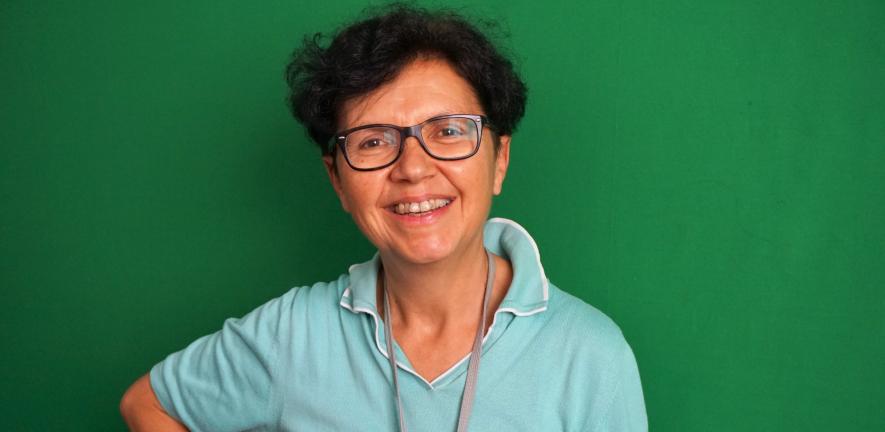
Submitted by Jane Durkin on Wed, 13/10/2021 - 10:50
Maria Teresa Guasti is Professor of Linguistics at the Università degli Studi di Milano-Bicocca (UNIMIB).
She studies language acquisition in children including monolingual and bilingual, children with cochlear implants, and children with specific language impairments and dyslexia.
Maria Teresa is currently working on two major international research projects.
The first is 'Multimind', a multidisciplinary project investigating the influence of multilingualism on language learning, cognition, creativity, brain and health. As part of this, she is investigating the relationship between language and music, and how rhythm is involved in explaining dyslexia.
The second is the ERC-Synergy project, 'Realizing Leibniz's Dream: Child Languages as a Mirror of the Mind' where, alongside co-PIs Artemis Alexiadou and Uli Sauerland, she is leading research into a new theory of language acquisition based on mistakes children make during early language development.
Maria Teresa will be presenting her research on 'Dyslexia as a window into language' at the Cambridge Language Sciences Annual Symposium on 23 November 2021.
My research sets out to investigate how children acquire language. I am particularly interested in certain types of mistakes that children make, like “I didn’t see nobody” in English, or “What do you think which boy ate the apple?” (rather than “Which boy do you think ate the apple?”), and what these mistakes reveal about the underlying structure of language.
I also investigate why some children experience long lasting difficulties in acquiring language or in becoming literate, and try to infer the linguistic mechanisms or components that have gone awry. At the same time, this may allow me to contribute to the wellbeing of these children by offering training tools to help them cope with their difficulties.
In addition, I am interested in the relationship between language and music. Language, like music, is a unique characteristic of human beings. The richness that you find in languages across the globe is immense and it reveals the creativity of the human mind. It is amazing for me to discover that there are deep similarities among languages that may allow us to understand the uniqueness of the human mind.
During a typical day, I meet with other researchers and discuss specific experiments we are carrying out, hypotheses and new ideas. I try to read articles and write about my research. I like writing and shaping a story to communicate my discoveries to others.
My work is interdisciplinary and I work with linguists, psychologists and engineers. With engineers, I am developing technological tools based on psycholinguistic methods for use by children with communication disorders.
In terms of career highlights, I am always very happy when I hear that my former PhD students have found a position or when they have some successful story to share with me. Another special moment for me was when the BILgroup – the linguists in Milano-Bicocca – organized an amazing birthday “conference”, where instead of talks, they shared pictures from my time with the group. I was also delighted and amazed when Uli Sauerland and Artemis Alexiadou and I received an ERC-Synergy grant for our project 'Realizing Leibniz's Dream: Child Languages as a Mirror of the Mind'.
I am currently involved in two exciting projects. One is the ERC-synergy project, 'Realizing Leibniz's Dream', where we are seeking to develop a new model of language based on what children living in different countries and speaking different languages say and comprehend. The second is about how rhythm is involved in explaining dyslexia. This project may give us some insight into the relationship between language and music, and into what is special about language.
I am also working with Franca Garzotto from the Politecnico of Milan on the development of language tools using interactive technologies to promote communication skills in children. Supporting language development is very important to offer these children opportunities and to help them fulfil their academic and life potential.
